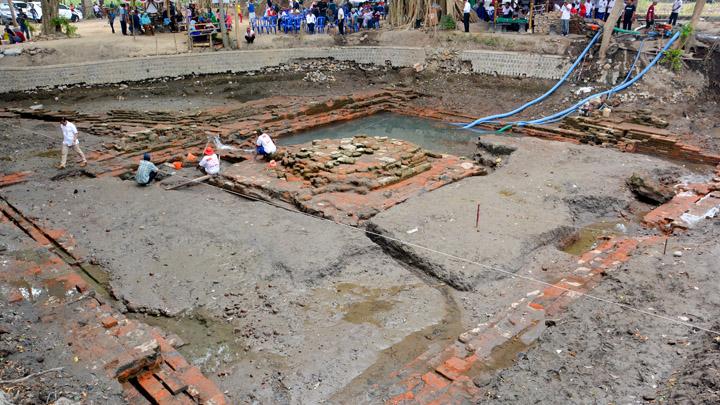
TEMPO.CO, Jakarta - Syamsiani Gafur no longer considers garbage 'dirty'. The 45-year-old woman can transform detergent- or soap-wrappings into home accessories such as napkin holders, flower pots, photo frames, tablecloths, hijab (headscarf) hangers and cabinets.
She makes women's handbags from used instant beverage packagings and one-meter-tall cabinets from cardboard. Syamsiani, who is a teacher at the Tanggul Pattompo II State Elementary School, also furnishes her home with recycled furniture, though her cardboard cabinet is only used for storing light items. "I'm rather proud that I'm able to recycle trash that I once considered disgusting," she said.
Most of Syamsiani's recycled products are sold at between Rp50,000 and Rp150,000, with some items selling for Rp10,000. She began to work with trash in 2007. She learned trash recycling from Achmad Sesse, 50, also a Karang Anyar resident. Today, fellow villagers get themselves initiated into the craft with the 50-year-old man and the village is now dubbed the 'recycling village'. Villagers share their techniques for recycling trash with people from other villagers.
Syamsiani now teaches her pupils at the Tanggul Pattompo II State Elementary School how to repurpose trash. Her students have participated in exhibitions at the local and national levels. They have also established a micro enterprise and in 2014 and won first prize in the Adiwiyata Mandiri Competition in Jakarta. The environment minister took to reporting the achievement of Tanggul Pattompo school to others already aware of conservation.
Achmad does not see the growing number of people in the recycling industry as competition. He is proud that he has contributed to reducing the amount of trash in his hometown.
In mid-1998 Achmad joined a training program on recycling organized by the environment ministry and Makassar's municipality government. He was inspired to improve his environment by repurposing trash into marketable products.
At the end of the two-day training course, Achmad began to make tentative designs that made use of recycled materials. The first things he made were a napkin holder from old newspaper and a multi-purpose container from plastic bottles that used to hold cleaning agents. Although he had only managed to produced those two items, Achmad was filled with indescribable pride. "It was so satisfying making use of plastic items that would have taken 250 years to decompose," he said.
Achmad continued to learn and create. He tried different techniques and ideas for recycling trash from the mainstream and social media. He also makes sure that Karang Anyar's products from repurposed trash are unique. To sew things together, he uses a sturdy yarn purchased in Surabaya, East Java. "I want people to use our products proudly," he said.
Over the past two years, for example, Achmad's distributor in the Netherlands has been placing regular orders for shipment of hundreds of recycled products from his village every quarter. The Dutch distributor also had Achmad create a branded label listing out the materials used to be attached to the products, instead of attaching his own brand, said Achmad. Consumers in Holland are proud to use recycled products, Achmad said. "In Indonesia, alot of people are still embarrassed to use repurposed trash."
Because of the negative perception, Achmad experienced certain challenges when training residents on environmental management and recycling. Many residents felt reluctant to handle trash, especially that of other people's, "Convincing them that waste contains potential economic value was very difficult," he said.
It took him six months of persistent campaigning before he managed to see a slight shifting of this perception. His strategy was striking up casual conversations with Karang Anyar families, to make his ideas more acceptable. (*)
Read more inspiring Outreach stories in Tempo English Weekly Magazine























